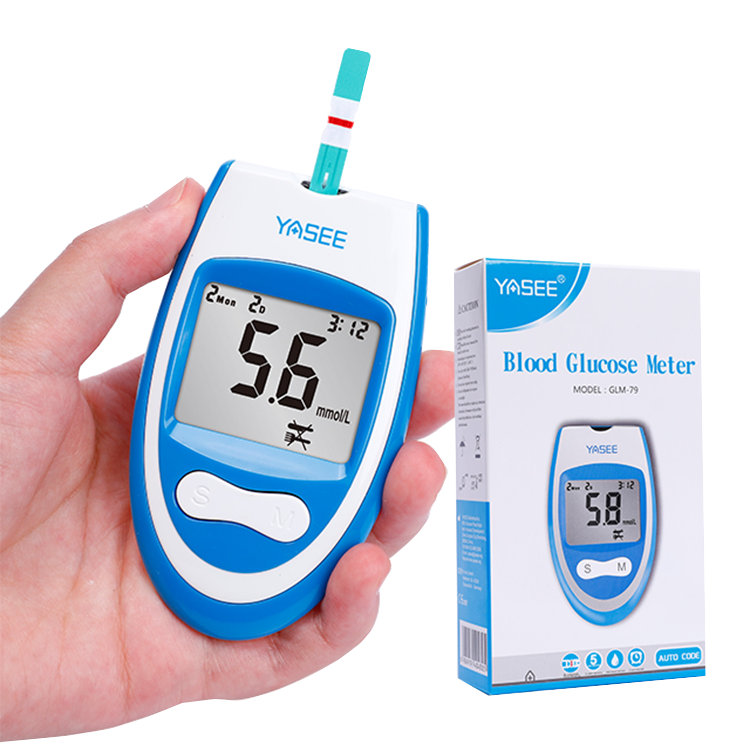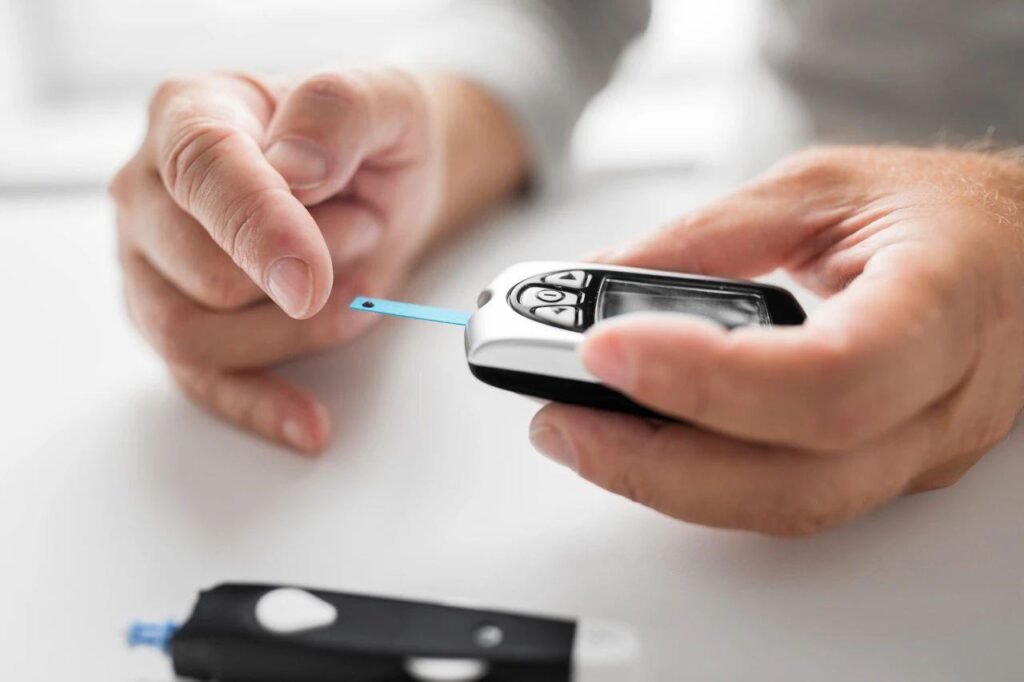Abstract:**
Diabetes is a chronic condition that necessitates regular blood glucose monitoring. This article explores the importance of blood glucose monitoring, its impact on the management of diabetes, and the role it plays in the clinical setting.
Keywords:** Blood Glucose Monitoring, Diabetes Management, Clinical Significance, Clinical Significance
- Introduction**
Diabetes affects millions of individuals worldwide, emphasizing the importance of effective diabetes management. Blood glucose monitoring is fundamental in the management of diabetes. - The Importance of Blood Glucose Monitoring**
- Definition and Purpose: Blood glucose monitoring involves regularly testing blood sugar levels to assess glycemic control and adjust treatment plans accordingly.
- Methods of Monitoring: Capillary blood glucose monitoring, HbA1c testing, and continuous glucose monitoring (CGM).
- Clinical Significance of Blood Glucose Monitoring**
- Short-term Glycemic Control: Monitoring helps in managing immediate fluctuations in blood glucose levels.
- Long-term Glycemic Control: HbA1c testing provides insights into the effectiveness of diabetes management strategies.
- Risk Assessment for Hypoglycemia: Regular monitoring helps in identifying and preventing hypoglycemic events.
- The Role of Blood Glucose Monitoring in Diabetes Management**
- Assessing Treatment Efficacy: Blood glucose monitoring aids in evaluating the effectiveness of diabetes therapies.
- Adjusting Treatment Plans: Customized treatment plans can be developed based on monitoring results.
- Preventing Complications: Early detection and intervention through monitoring can prevent diabetes-related complications.
- Challenges and Solutions in Blood Glucose Monitoring**
- Patient Compliance: Strategies to improve patient adherence to monitoring regimens.
- Technological Advancements: Leveraging new technologies to enhance the accuracy and accessibility of blood glucose monitoring.
- Future Perspectives**
- Innovative Monitoring Technologies: The development of non-invasive and continuous monitoring devices.
- Integration with Digital Health: The role of digital health platforms in facilitating remote monitoring and data analysis.
- Conclusion**
Blood glucose monitoring is an indispensable tool in diabetes management. As technology progresses, the future of blood glucose monitoring promises more accurate, convenient, and patient-centric solutions, ultimately improving the quality of life for individuals with diabetes.
Body (Partial):**
Diabetes is a global health issue that requires vigilant glucose monitoring for effective management. Blood glucose monitoring plays a critical role in assessing the efficacy of treatments, adjusting therapeutic plans, and ultimately preventing complications.
Short-term Glycemic Control:
Short-term control of blood glucose is crucial for managing day-to-day fluctuations. Monitoring helps patients and healthcare providers make immediate adjustments to diet, exercise, and medication, ensuring that blood glucose levels remain within a safe range.
Long-term Glycemic Control:
Long-term monitoring, such as HbA1c testing, provides a broader perspective on glycemic control over time. This information is vital for assessing the effectiveness of long-term diabetes management strategies and for making informed decisions about treatment adjustments.
Risk Assessment for Hypoglycemia:
Hypoglycemia is a significant concern for individuals with diabetes. Regular monitoring can identify patterns that may lead to low blood glucose events, allowing for timely interventions to prevent severe hypoglycemia.
Conclusion:
In conclusion, blood glucose monitoring is a cornerstone of diabetes management. As we advance in technology, the future of blood glucose monitoring is expected to offer more precise, accessible, and patient-friendly solutions, enhancing the overall management of diabetes and the quality of life for those affected.



